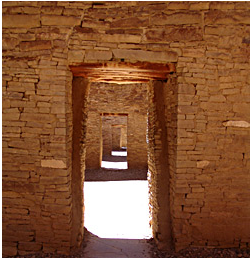Publication Date
5-19-1969
Abstract
This is a study of Chippewa Indians living in a small northern Minnesota city which is in close proximity to the reservations from which the majority of the adult Indians have originated. The research deals with two relate problems; (1) Identification of determinants for Chippewa relocation to this community; and (2) Specification of the dimensions of adaptation and their inter-relationships in the urban population studied. The total socio-cultural environmental is analytically conceived as consisting of four major elements: the American economic system, American mass culture and society, the city, and “Indian culture,” which is further subdivided into traditional culture, reservation systems, and Pan-Indian phenomena.
The main portion of the material utilized is comprised of interview data from a random sample of the city Chippewa. Information from other interviews and from direct observation are also used. Data from nearby reservation communities have been used for comparisons with the demographic, economic, are marriage patterns of the urban Indians.
Several general characteristics of these urban Indians have been identified and related to relocation to the city. The economic situation and race relation in the community have been proposed as factors producing the rural-like demographic structures of the resident Indian population.
A high incidence of reservation out-marriage and unusual occupational histories among these people have been analyzed as contributing to a condition of “social marginality.” This condition appears to be a major factor in the eventual relocation of these Indians to the city. The majority of the adults have lived away from their natal home prior to movement to this community.
Major dimensions of urban adaptation have been isolated, operationally defined, and relationships among them have been described statistically. In this study application of the Guttman scaling technique has permitted precise specification of a variety of adaptive dimensions and ranges of variation among them. Ordinal typologies have been developed which array individuals with respect to economic adaptation, mass media exposure, city involvement, native language proficiency, familiarity with traditional customs, and interaction with reservation Indians. Other studies of American Indian adjustment to urban life and have not dealt systematically with extra-city elements of the overall environment. The rigorous empirical approach of this study has made it possible to quantify inter-relationships among several dimensions of the adaptive process by statistical measurement and by significance testing of associations among scale typologies and other indices.
The is a significant tendency for levels of adaptation to non-Indian component of the environment to vary inversely with measures of “Indian culture”; however, material styles of life appear to have no direct association, either positive or negative, with participation in certain non-linguistic forms of Indian culture. Similarly, differences in familiarity with traditional customs exhibit no significant relation to most measures of adaptation to non-Indian environmental elements.
Ward H. Goodenough’s concept of “private, operating, and public cultures” is employed in an examination of socio-cultural processes underlying the empirical findings. Certain gradients of cultural differences among individuals are shown to correspond with variations in personal social networks.
The analysis has indicated that residence in this small urban community is a strategy by which some Chippewa “maximize” the advantages of disparate elements of their total environment. More importantly, this study has demonstrated the usefulness of the analytical techniques and concepts employed for the study of problems of urbanization, which have become of increasing significance in anthropological research as the interests of investigators have focused on the understanding of the phenomena in complex, contemporary cultures.
Document Type
Dissertation
Language
English
Degree Name
Anthropology
Level of Degree
Doctoral
Department Name
Anthropology
First Committee Member (Chair)
Harry Wetherald Basehart
Second Committee Member
Nancie L. Solien de Gonzalez
Third Committee Member
Phillip K. Bock
Recommended Citation
Paredes, J. Anthony. "Chippewa Townsmen: A Study in Small-Scale Urban Adaptation." (1969). https://digitalrepository.unm.edu/anth_etds/206

